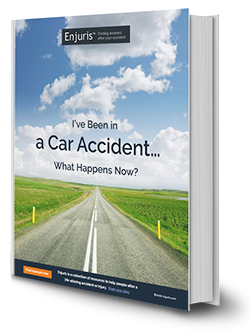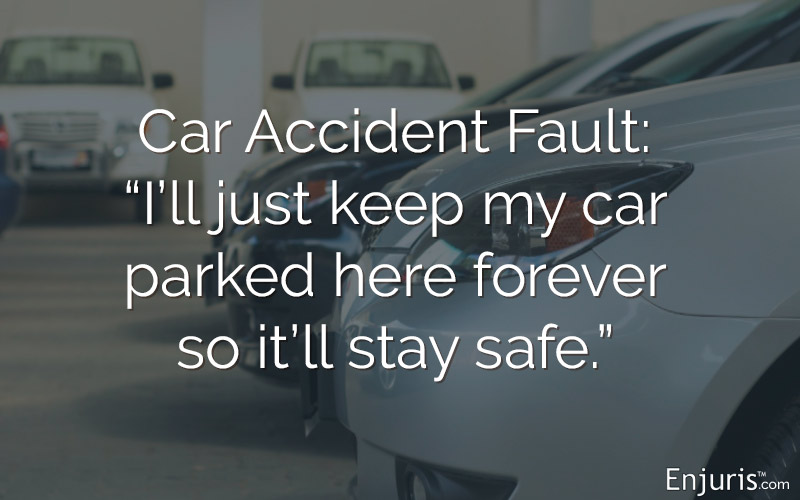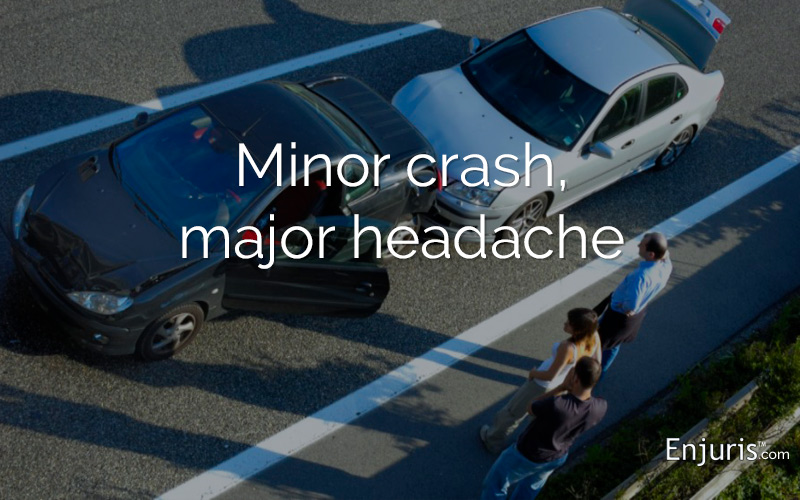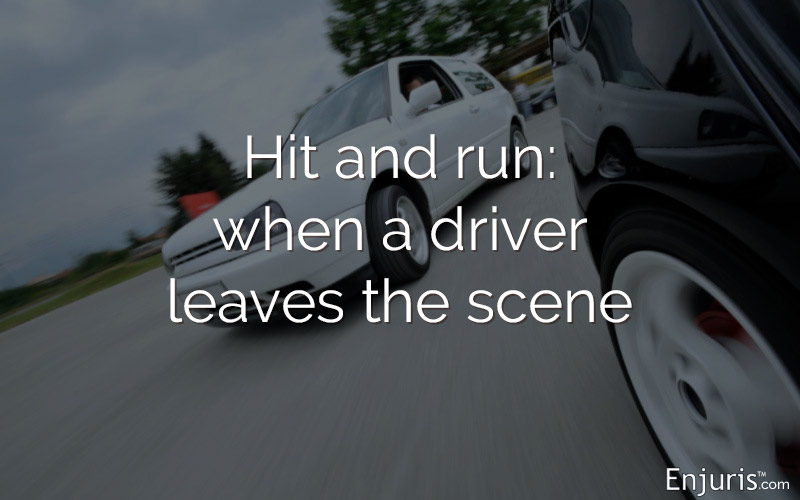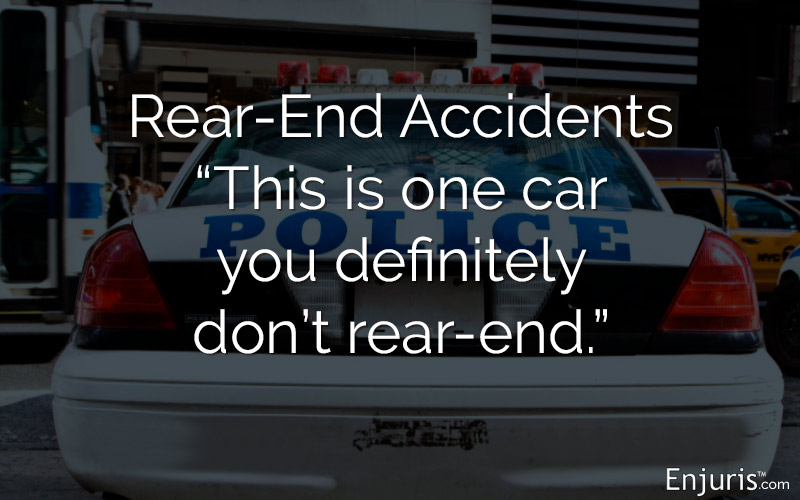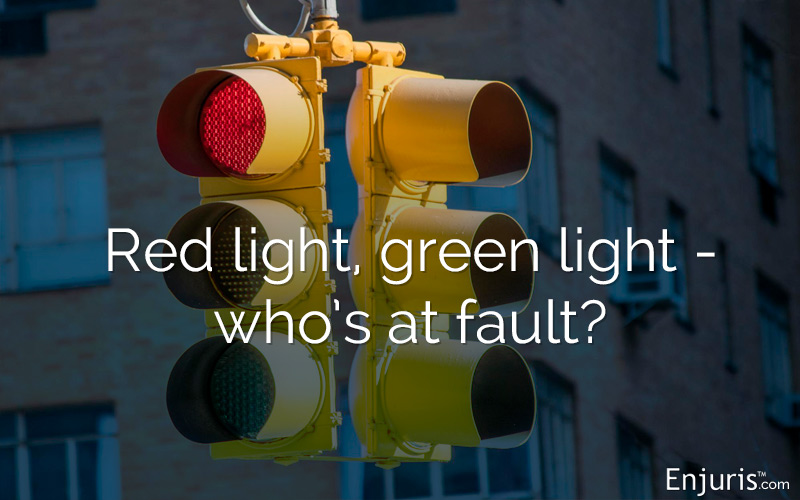What Massachusetts no-fault insurance and other laws mean for your car accident claim
Maybe you spend each summer cruising the infamous Route 6 across Cape Cod (complete with traffic jams and the faint whiff of sea air). Or perhaps you're a Massachusetts resident who commutes along the Mass Pike each day… or maybe you live in other parts of the state that are less crowded, but you still spend time on the road.
Regardless of how you travel in Massachusetts, a car crash is inevitable for most people at some point in their lives. It's important to know what to do and what the laws are if you find yourself in that situation.
Massachusetts had 343 fatal crashes in 2018 that resulted in 360 deaths. The state has nearly 7 million residents, which means there were about 5.2 vehicle-related deaths per 100,000 population.The Insurance Institute for Highway Safety (IIHS) estimates that Massachusetts residents traveled about 66.7 million vehicle miles in 2018, and there were 0.54 deaths per 100 million vehicle miles traveled.
Here's a closer look at how Massachusetts residents were affected by vehicle crashes in 2018:
Massachusetts car accident insurance laws
Before you hit the road, it's crucial that you make sure your auto insurance meets Massachusetts legal requirements.
Your vehicle must have the following minimum insurance coverage:
- $20,000 per person / $40,000 per accident bodily injury liability coverage
- $5,000 property damage coverage
- $20,000 per person / $40,000 per accident uninsured motorist bodily injury coverage
- $8,000 personal injury protection
There are additional options for comprehensive and collision coverage. Uninsured motorist coverage is also required in Massachusetts but underinsured motorist coverage is optional.
Massachusetts is a no-fault insurance state
If you're in a car accident, you turn first to your own insurance to recover damages. You can file a claim on your insurance policy for medical expenses, property damage, and other fees and costs.
You may file a personal injury lawsuit for a Massachusetts car accident only if:
- The injuries cost you more than $2,000 in reasonable medical expenses, or
- The injuries are permanent and severe in a way that will affect your quality of life. This could include broken bones, disfigurement, lost hearing or vision, partial or complete loss of a body part, or death of a family member.
Then, does it matter who's at fault for a car accident in Massachusetts?
Yes!
Massachusetts car accident liability
Massachusetts follows a modified comparative negligence standard of law. If you have to file a lawsuit (for any personal injury in Massachusetts), you can recover for your injuries only if you're less than 51% at fault. If your allocation of fault is 51% or higher, then you can't recover any damages.
If you're 50% or less at fault, the amount of your damages would be reduced by your percentage of fault.
Here's an example of how liability laws work in Massachusetts:
You were involved in a car accident in Boston. After the accident investigation is completed and insurance has been exhausted, it's determined that you were 30% at fault.
Your total damage award is $120,000. Since you were 30% at fault, the final amount you receive is $84,000, which is $36,000 (30%) deducted from $120,000.
If your car accident injuries are covered in their entirety by your insurance, there's nothing more you need to do. But if you have damages that exceed the limits of your insurance policy, you might need to file a lawsuit.
Recoverable damages after a car accident
Every personal injury claim could include both economic and non-economic damages.
Economic damages
Personal injury lawsuits have one goal: to make the plaintiff whole. While no lawsuit will help you recover physically, the idea is to restore you to the financial state you'd be in if the accident hadn't happened.
In other words, if your 15-year-old mid-range sedan is totaled, you'd be able to recuperate the market value of the car based on estimates from common sources like Kelley Blue Book. The lawsuit would not compensate you for property damage above the estimated value of your vehicle such as a brand-new luxury SUV.
Likewise, you can receive damages to cover medical costs that include things like a hospital stay, doctor's visits, diagnostics like X-rays or MRIs, prescription medication, or other expenses related to the accident. An accident might leave you feeling annoyed or inconvenienced, but with economic damages you can only claim things that cost you money.
Non-economic damages
However, if your injuries were severe and resulted in pain and suffering or other emotional distress, you can receive additional compensation. Attorneys and courts have formulas that assign a financial value based on how the accident has affected your life, including emotional anguish. These are considered non-economic damages because they don't have immediate financial value, but they can be calculated and included in a damage award.
How to establish negligence for a car accident claim
If you need to file a lawsuit, there are 5 elements that must exist in order to make a valid claim:
- Duty. You must show that the defendant owed you a duty. We all have a duty to someone, and that changes based on circumstances. You don't have to know someone or have a relationship with them in order to owe them a duty. Every driver has a duty not to cause harm to any other road user, whether it's other motorists, pedestrians, or bicyclists. Therefore, the fact that the other person was sharing the road with you can be enough to establish a duty.
- Breach. The second element to a personal injury claim is proving that the defendant breached their duty. In a car accident situation, this means the driver was negligent through action or inaction. They might have been following road rules and driving cautiously, but still made an error (like misjudging speed, for example) that was negligent.
- Causation. Once it's proven that the defendant acted negligently, did that negligence cause the accident? A driver might have rolled through a stop sign, but if that wasn't the cause of the accident, then they might not be legally negligent in a way that resulted in your injuries.
- Injury. In order to have a valid claim, you must have suffered an injury. If you were in a minor accident like a slow-speed rear-ender, you might be annoyed but otherwise unharmed. You can't claim damages unless you suffered an actual injury, financial costs or property loss.
- Damages. As discussed above, damages are the money you can recover for your losses. Economic damages are the value you can claim for objective expenses, and non-economic losses could be for subjective claims and are based on the severity of your injuries.
Statute of limitations for a Massachusetts car accident lawsuit
The statute of limitations is the amount of time in which you're permitted to file a lawsuit. Most car accident and personal injury claims in Massachusetts must be filed within 3 years of the date of the accident. If you fail to file your claim within the allotted time, the court can refuse to take your case.
10 most common causes of car accidents
- Distracted driving. Distracted driving is a serious problem. As people become increasingly dependent on cell phones for maps, podcasts, music, traffic reports, and other functions, there is a stronger pull to check their phones. But you should never, ever handle your phone or any electronic device while driving. Also, distraction can include eating, passenger behavior, personal grooming, or any other behavior that takes your mind, eyes or hands off driving.
- Drunk driving. You're not allowed to drive if your blood alcohol content (BAC) is 0.08% or higher. Being under the influence of alcohol, drugs, or some medications can severely affect your driving and raises your risk of causing an accident.
- Aggressive driving. You've likely heard of "road rage," which is when a person becomes so angry at another person that they might bully or physically harm someone on purpose because they're annoyed. But there are other kinds of aggressive driving that don't necessarily involve anger at a specific individual. Some drivers might be impatient and speed or swerve around cyclists or cars they think are going too slowly, make unsafe lane changes, or behave recklessly in some other way that could result in an accident.
- Speeding. Sometimes speeding is aggressive, and sometimes it is just carelessness. You might speed because you're in a hurry or running late, but you shouldn't. Speeding doesn't get you to your destination any faster if you crash or get a ticket. And when you speed, you have less time to react to a traffic situation in front of you and less time to stop if necessary.
- Reckless driving. Similar to aggressive driving, reckless driving is any kind of action behind the wheel that's unsafe. It might be speeding, weaving, dodging other cars, failure to stop at lights or stop signs, or any other number of reckless driving practices that break road rules or are unsafe.
- Inexperienced drivers. Your teenager might be the most responsible kid around, and they might care a lot about following road rules, driving at the correct speed, heeding stop lights and signs, and doing everything "right." But younger drivers are inexperienced. That lack of experience could cause even the most careful driver to misjudge the speed of an oncoming car, poorly execute a turn, or make another mistake that results in an accident. And, some teenagers are more likely to take risks than an older driver would. Statistically, younger male drivers are most likely to make risky driving decisions.
- Tailgating. Tailgating is when a driver follows too closely behind the driver in front of them. Some tailgating is aggressive, but sometimes it happens because someone isn't paying attention or simply doesn't see the practice as dangerous. When traveling 55 mph, you should leave 16 car lengths (which is about 243 feet) between your vehicle and the car in front of you. Tailgating is dangerous because when you're too close to another vehicle, you don't have enough time to stop if you need to do so quickly. No car can stop on a dime, even if you react quickly. And, even if you stop very fast, there's no guarantee that the driver behind you will be able to do so. As a result, tailgating can result in chain-reaction accidents.
- Weather conditions. Massachusetts is no stranger to severe weather — ice, snow, wind, and other conditions are a regular part of our life. When the weather is extreme, it's best to stay off the roads when you can. But when that's not practical or realistic, exercise caution and drive slowly.
- Failure to obey traffic laws. Traffic laws are more than just stopping at red lights. Following the speed limit, staying in your lane, passing bicyclists safely, and yielding to pedestrians are just a few of the many necessary aspects to driving responsibly. Be familiar with the traffic laws in your local area and state, and obey them at all times to reduce your risk of a collision.
- Failure to stop at a red light or stop sign. Although stopping for stop signs and traffic lights are part of following traffic rules, they're also among the ones drivers break most often. Even if you think you're driving through a "quiet" intersection, you must stop completely at stop signs and lights.
What to do after a car accident in Massachusetts
- STOP. Massachusetts law requires you to stop at the scene of any collision, no matter how minor. Failure to stop and provide your contact and insurance information at the scene can result in criminal hit-and-run charges. You can pull your car off the road and out of traffic if no one is seriously injured. Never attempt to move a seriously injured person.
- Call 911. Massachusetts law requires that you report any accident that results in injury or death, or where damages cost more than $1,000. Even if none of those has happened, it's always a good idea to call the police when a collision occurs. A police report serves as valuable evidence that can be helpful to your insurance claim or lawsuit.Even if you know or think you're at fault, a police report can still help you. For instance, a plaintiff could try to claim that they were more injured than they actually were or that their car sustained more damage, but the police report will set forth the facts of the accident exactly as they're assessed at the scene.
It's important to cooperate with police officers, though you don't need to make a statement of fault. You're not required to make a statement about how the accident happened (and it's probably best if you don't), but you can and should provide factual information like your name, address, vehicle registration, and those types of answers when asked.
- Seek medical attention. Even if you don't feel injured, visit a doctor or hospital anyway as soon as possible following a collision. Some car accident injuries like whiplash and head injuries could have symptoms that don't appear for days or weeks after the accident. If you don't have an immediate medical assessment of your condition, it can be difficult to prove that a later injury is related to the accident.
- Obtain witness information. In the moment, you don't need to think about gathering witness statements. But it is important to be able to reach those people later. A well-meaning bystander might wait to make sure help has arrived or to see if everyone is okay and then leave the scene, figuring there's no reason to stick around. But if anyone at the scene observed the accident — or the period leading up to it — they might have important, relevant information that can help with your case. Write down each person's name, phone number, email address, and mailing address if possible.You might also check to see if any surveillance cameras captured the crash on video. Many businesses and residences are equipped with cameras these days. If the accident happened somewhere that's close to a business or home, you might be able to recover that footage. But be quick — most businesses will delete camera footage within a short time if they don't think there's a reason to save it. If you think there might be worthwhile information there, notify the business right away so the footage from that time period can be saved.
- Take photos. Yes, a police report is important, but you've heard that a photo is worth a thousand words. If you're not injured and are able to do so safely, take photos of the scene. Take pictures of the weather, any traffic signs or signals, the vehicles involved, other property damage, road markings, and anything else that might tell a story about how the accident happened and its aftermath. Don't take photos of another person's injuries, though, as this is an invasion of privacy (you may photograph your own injuries if you choose).
- Call your insurance company. A report isn't the same as a claim. You don't have to decide on the spot if you're going to file a claim or not (you might decide to pay out of pocket, for instance). But if you don't make a report immediately, you could lose the option to file a claim in the future if you decide that you want to. Many insurance companies have strict time limits on when you need to report the accident, whether or not you intend to file a claim. You only need to give them the basic information about the accident in order for it to be reported.
Refer to this list of free printable documents that are designed to help organize your needs after a car accident. Documents include:
- Guide to Massachusetts Car Accident Injury Laws
- Civil Lawsuits for Massachusetts Drunk Driving Car Accidents
- Compensation For a Massachusetts Distracted Driving Accident
- Guide to Massachusetts Bus Accident Injuries & Recovery
- Massachusetts Aviation Accidents & Plane Crash Lawsuits
- Massachusetts Boating Laws, Regulations and Accidents
- Massachusetts Car Insurance Laws & Coverage Requirements
- Massachusetts Guide to Hit and Run Accidents
- Massachusetts Pedestrian-Vehicle Crash Injury Lawsuits
- Massachusetts Train Accident Injuries & Lawsuits
- Recovering Damages After a Massachusetts Bicycle Accident
Did you know that car accident law varies by state?
Hurt in a car crash? You may find these resources helpful
Need a lawyer?
What does an injury lawyer do?
A personal injury lawyer helps individuals who have sustained injuries in accidents to recover financial compensation. These funds are often needed to pay for medical treatment, make up for lost wages and provide compensation for injuries suffered. Sometimes a case that seems simple at first may become more complicated. In these cases, consider hiring an experienced personal injury lawyer. Read more
Common car accidents
